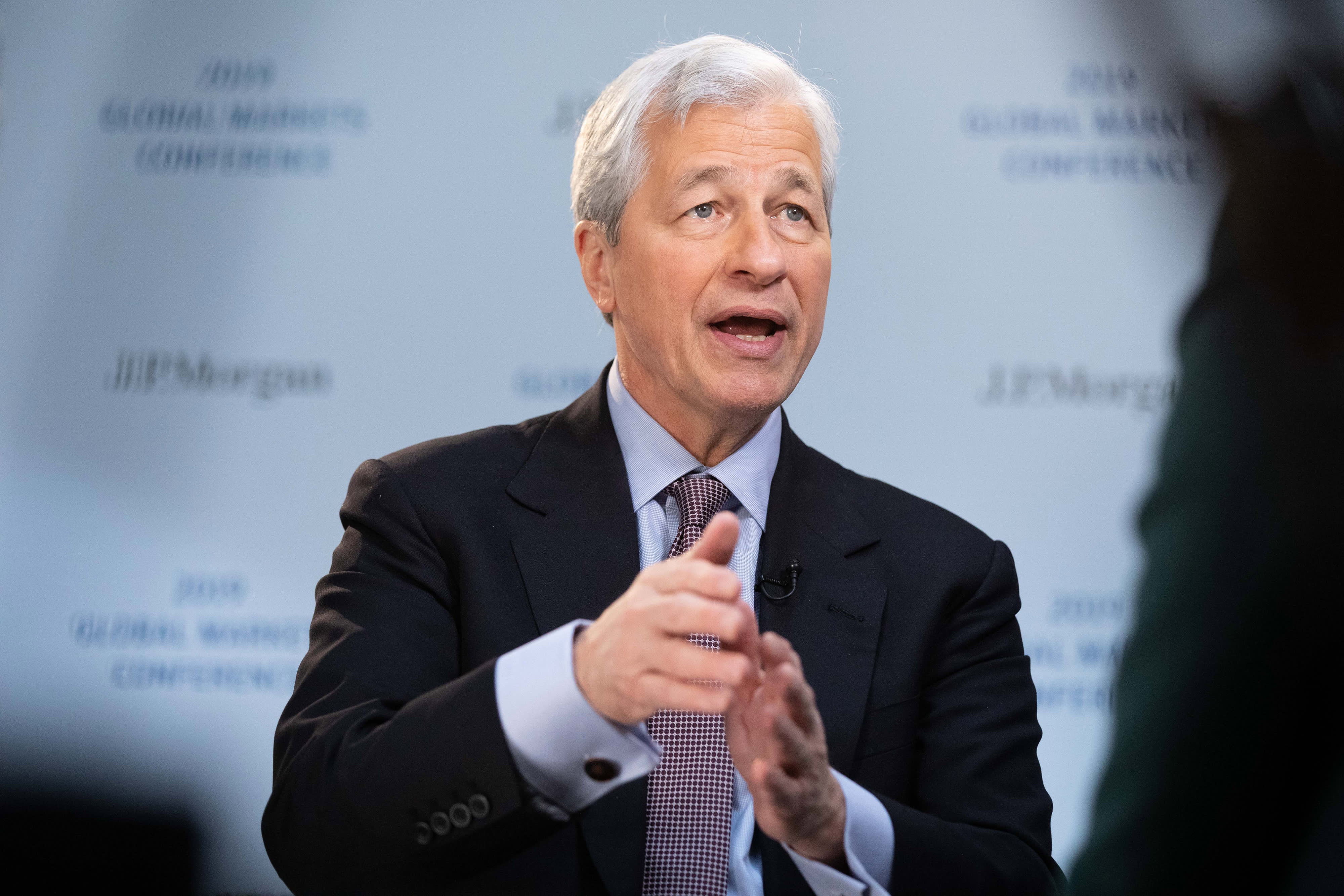In 1998, Jamie Dimon was fired by his own mentor, former Citigroup CEO Sandy Weill, after the pair had worked together for 15 years.
At the time, “I was the president and chief operator of Travelers,” an insurance company, Dimon, now 64, said on the July 15 episode of the “Coffee with The Greats” podcast. “It was great – we started as one little company and it had done extremely well.
“Then we merged with [Citicorp],” he said.
With the merger, Dimon became president at Citigroup. But not long after, Weill asked Dimon to resign. (Weill told The New York Times in 2010 that Dimon wanted to be CEO and Weill wasn’t ready to retire. By 2014, Weill had softened on the subject, telling CNBC’s “Squawk Box,” “I wish Jamie and I had been able to work out our issues and that it didn’t have to end up in a break up.”)
“When I was fired from Citi … I was totally surprised,” Dimon said on the podcast. But “I shouldn’t have been. There were a lot of tell-tale signs, but I missed them at the time.”
Still, despite losing his job, Dimon was “fine,” he said, because he knew “it was my net worth, not my self worth, that was involved.”
What Dimon did miss was the camaraderie of working on a team. “I missed showing up at an office where you walk in and have people to talk to and have issues to deal with,” Dimon said.
“I missed the crusade – fighting for something. You have something to accomplish with that team. Anyone who has played a team sport understands what it feels like…. There’s no feeling like it in the world.”
Dimon, who “went from working 80 hours a week to zero,” used the down time to figure out what kind of leader he wanted to be in his next role. He read biographies of national leaders and took up boxing to relieve stress.
“People say you have a shelf life,” Dimon told Council on Foreign Relations chairman David Rubenstein at a conference in 2019, so he “took any incoming call.”
“Any job’s a job. I was getting a bit restless. I couldn’t fill up my day,” he said.
Dimon interviewed for various positions at companies like Home Depot and Amazon. Amazon in particular “appealed to me a little bit to move — remember [the movie] ‘Sleepless in Seattle’ had come out a couple years earlier. [I would] get a houseboat and never put a suit on again,” he told Rubenstein.
Though Dimon thought at the time that Bezos “had a real opportunity to build something,” it was just “a bridge too far for my family, me. I’d spent my whole life in financial services. And so I decided I should probably find something in financial services.”
In 2000, Dimon became CEO of Chicago-based Bank One and was excited to be part of the bank’s growth. That year, Bank One reported a loss of $511 million, according to The Harvard Business Review. With Dimon as CEO, just three years later, Bank One reported a record profit of $3.5 billion.
In 2004, JPMorgan Chase bought Bank One, and in 2005, Dimon was named CEO of JPMorgan Chase.
“I didn’t know what being CEO meant. I don’t think it should be someone’s goal,” he said on the podcast.
“It’s not perfect. People aren’t perfect. Organizations aren’t perfect. It’s a hugely challenging thing to deal with all the time – the competition, the people, what’s going on. [But] those are the things that kind of turn me on. I missed the intellectual challenge.”
Dimon is worth $1.3 billion, according to Forbes.
Check out: The best credit cards of 2020 could earn you over $1,000 in 5 years
Don’t miss:
